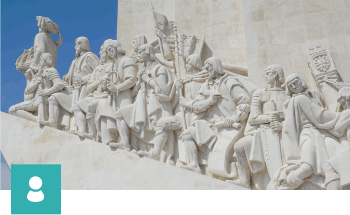Projects
- Origins of Prejudice and Social Division Intergroup Relations
Political Psychology
- How We Know “Right” and “Wrong” Moral Psychology
Psychology and Law
- Mutuality of Mind and Culture Cultural Psychology
Communication and Culture
What’s New
-
Minoru Karasawa delivered an opening speech at an international conference in Vietnam
-
A new book, Legal Radicalism (in Japanese; Yuhikaku Publishing, Tokyo), has been published.
-
Members of our lab gave their presentations at the 15th Biennial Conference of the Asian Association of Social Psychology
-
Minoru Karasawa became the 15th President of the Asian Association of Social Psychology
-
Yanagida, Karasawa, & Murata (2022) received the Best Paper Award
About Us
In general terms, the members of our lab conduct research in a field known as social cognition.
Social cognition is a subfield of social psychology, which is concerned mainly with how people make sense of their social worlds - consisting of other people around them as well as the groups and communities to which they belong.
Research Gallery
-
Japanese National Identity
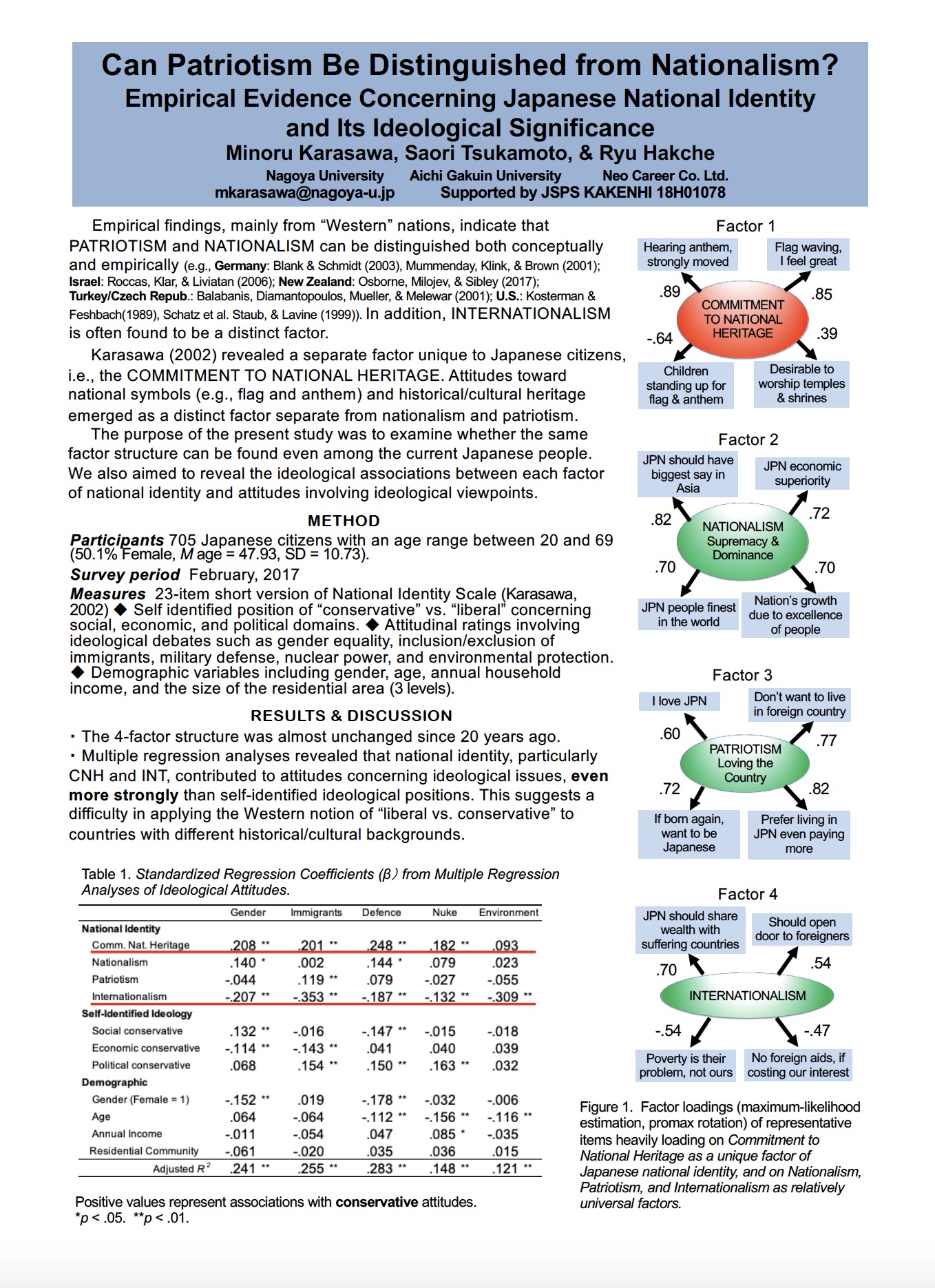
Karasawa, Tsukamoto, & Ryu (2020). Can patriotism be distinguished from nationalism? Empirical evidence concerning Japanese national identity and Its ideological significance. Poster presented at SPSP Annual Conference (New Orleans, LA, USA)
-
Stereotype and Language
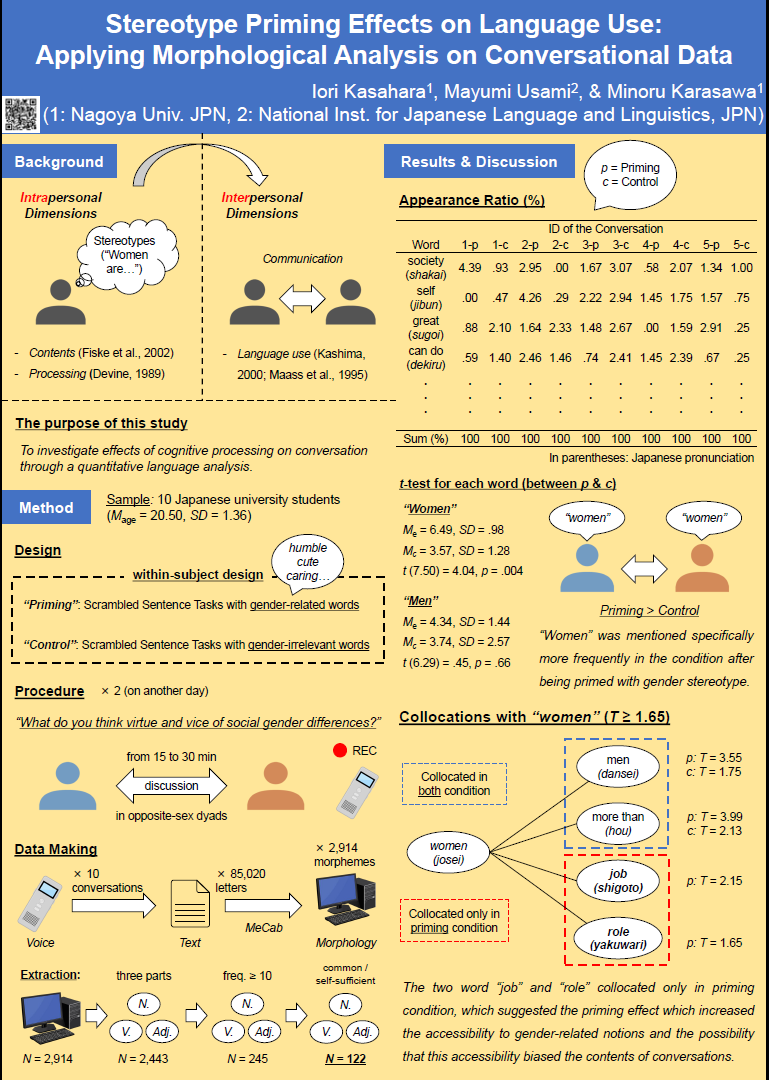
Iori KASAHARA (Ph.D. Student) presented at SPSP 2020 (New Orleans, LA, USA).
-
Wice, Karasawa, Matsui, & Miller (2020)
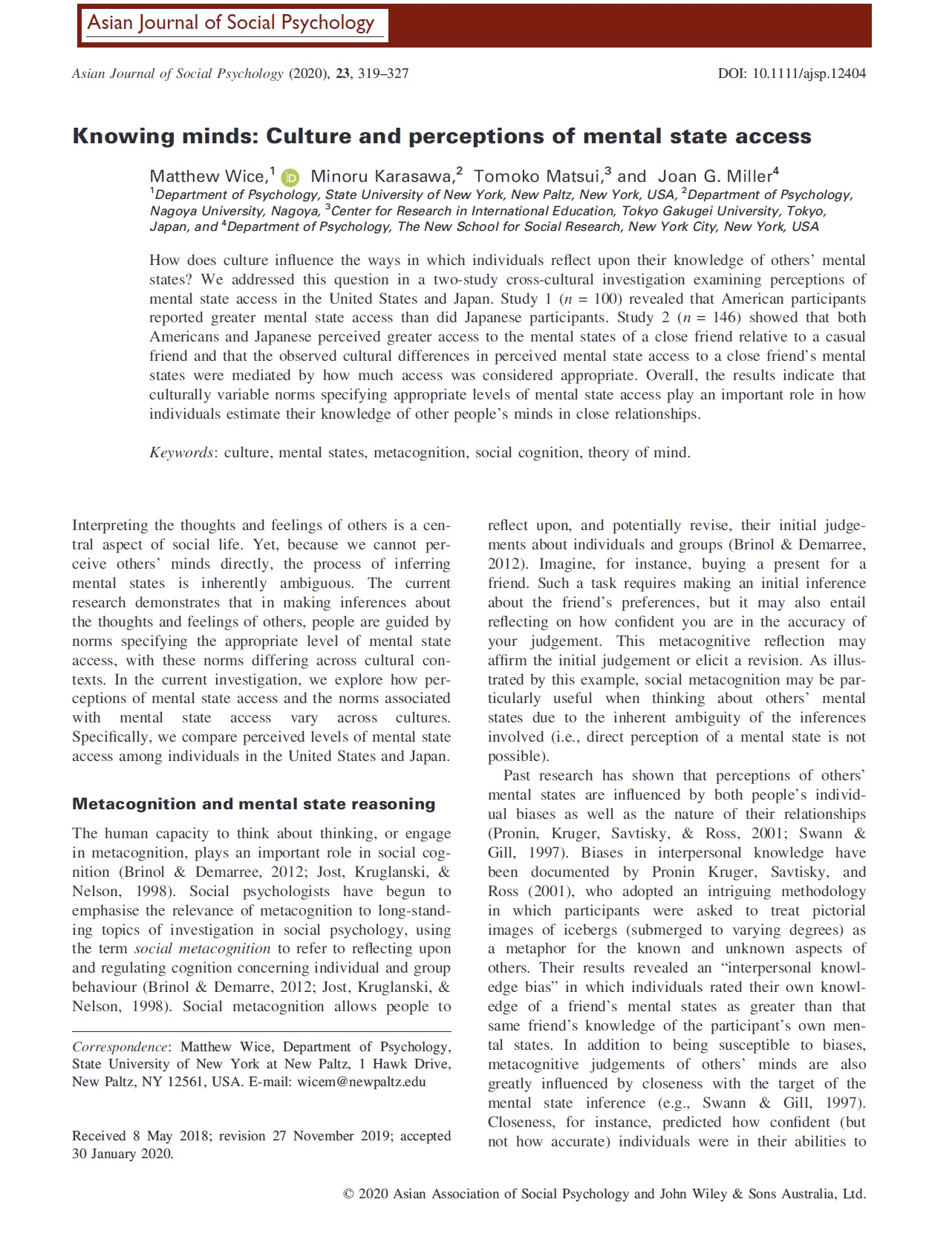
Knowing minds: Culture and perceptions of mental state access. Asian Journal of Social Psychology, 23, 319-327.
-
Matsuo, Sasahara, Taguchi, & Karasawa (2019)
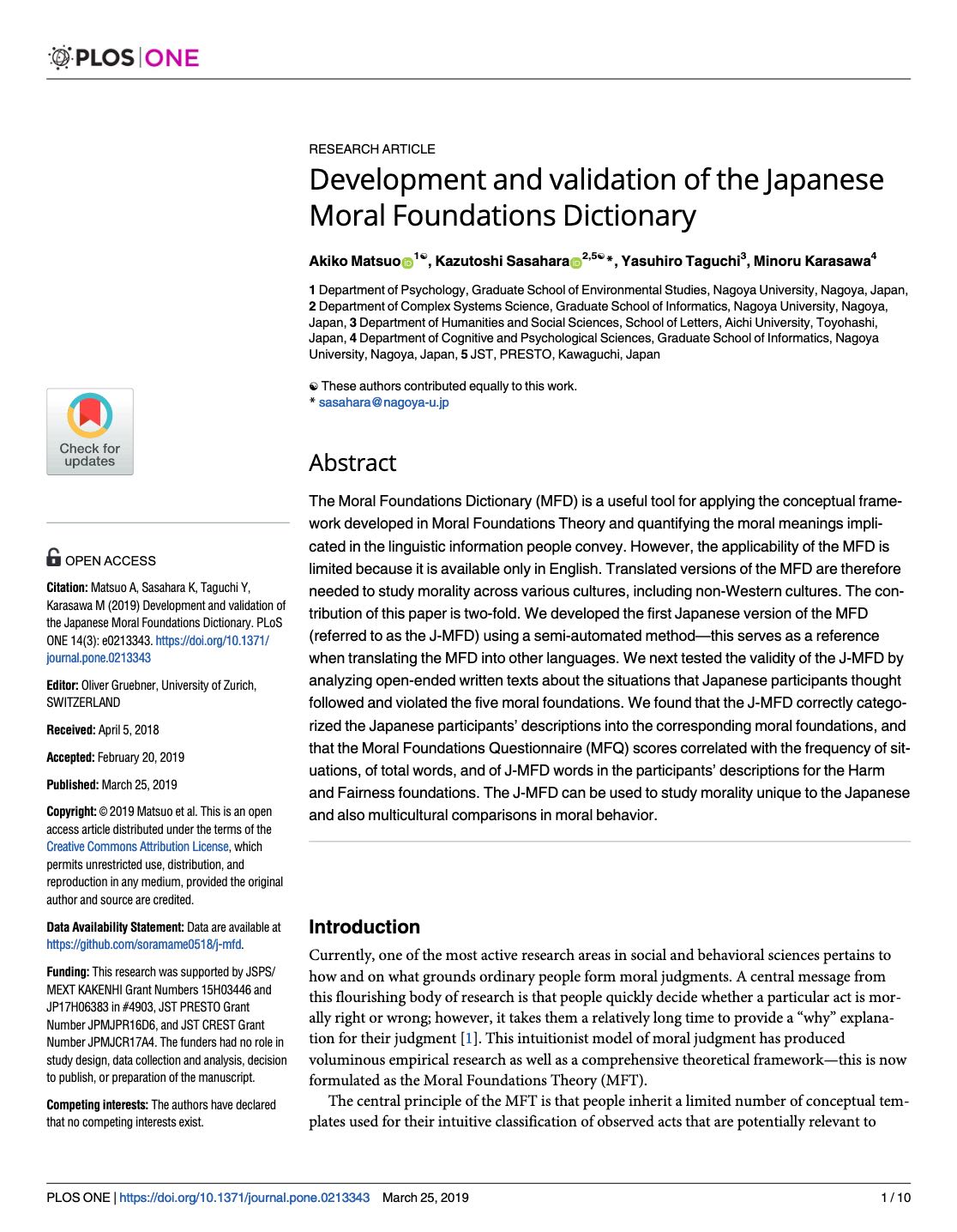
Development and validation of the Japanese Moral Foundations Dictionary. PLOS ONE, 14(3): e0213343
-
Talk at TEDxNagoyaU
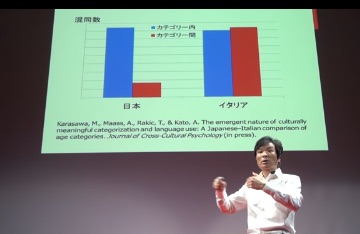
Psychological Mechanisms Underlying Social Divisiveness
(in Japanese)
Global Research Network
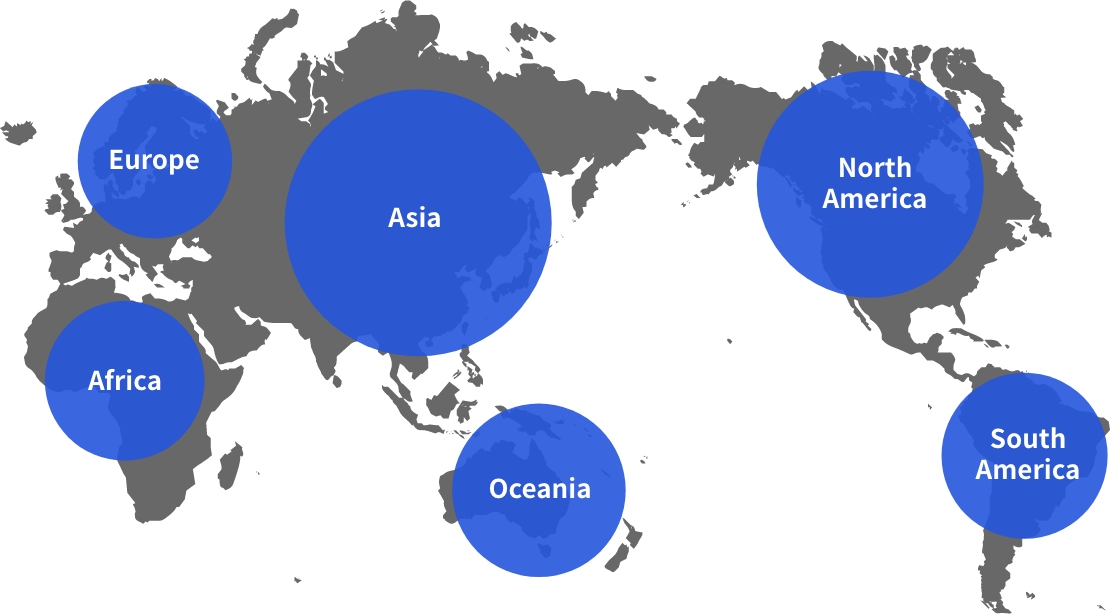
Collaborations with researchers in asia
-
Experimental and cross-cultural evidence that parenthood and parental care motives increase social conservatism
Kerry, N., Al-Shawaf, L., Barbato, M., Batres, C., Blake, K. R., Cha, Y., Chauvin, G. V., Clifton, J. D. W., Fernandez, A. M., Galbarczyk, A., Ghossainy, M. E., Jang, D., Jasienska, G., Karasawa, M., Laustsen, L., Loria, R., Luberti, F., Moran, J., Pavlovic´, Z., Petersen, M. B., Smith, A. R., Zˇezˇelj, I., & Murray, D. R. (2022). Experimental and cross-cultural evidence that parenthood and parental care motives increase social conservatism. Proceedings of the Royal Society B, 289 , 20220978. https://doi.org/10.1098/rspb.2022.0978Despite the clear psychological importance of parenthood and the motivation to provide care for children, researchers have only recently begun investigating their influence on social and political attitudes. Because socially conservative values ostensibly prioritize safety, stability, and family values, we hypothesized that being more invested in parental care might make socially conservative policies more appealing. -
Perceived warmth of offending group moderates the effect of intergroup apologies
Awale, A., Chan, C., Tam, K., & Karasawa, M. (2022). Perceived warmth of offending group moderates the effect of intergroup apologies.
Group Processes & Intergroup Relations, 25, 1372-1394. https://doi.org/10.1177/1368430220961844Using actual and fictional scenarios, we examined whether the apology–forgiveness relationship and the apology–remorse relationship were dependent on the victim group members’ perceived warmth of the offending group. -
Individual, group, and temporal perspectives on the link between wealth and realistic threat
Celikkol, G., Renvik, T. A., Sortheix, F. M., Jasinskaja-Lahti, I., Jetten, J., Ariyanto, A., Autin, F., Ayub, N., Badea, C., Besta, T., Butera, F., Costa-Lopes, R., Cui, L., Fantini, C., Finchilescu, G., Gaertner, L, Gollwitzer, M., Gómez, A. González, R., Hong, Y.-y., Jensen D. H., Karasawa, M., Kessler, T., Klein, O., Lima, M., Megevand, L., Morton, T., Paladino, P., Polya,T., Ruza, A., Shahrazad, W., Shama, S., Smith, H. J.,Torres, A. R., van der Bles, A. M., & Wohl, M. J. A. (2022). Individual, group, and temporal perspectives on the link between wealth and realistic threat. Current Research in Ecological & Social Psychology, 3. https://doi.org/10.1016/j.cresp.2022.100054In this 28-country study (N = 6112), we assessed how subjective perceptions and objective indicators of wealth were associated with majority group members’ perceptions of realistic threat related to immigration. -
Materialist and post-materialist concerns and the wish for a strong leader in 27 countries
Lima, M. E. O., de França, D. X., Jetten, J., Pereira, C. R., Ariyanto, A., Autin, F., Ayub, N., Badea, C., Tomasz Besta, T., Butera, F., Costa-Lopes, R., Fantini, C., Finchilescu, G., Gaertner, L., Gollwitzer, M., Ángel Gómez, Á, González, R., Hong, Y-y., Jensen, D. H., Karasawa, M., Kessler, T., Klein, O., Jasinskaja-Lathi, I., Megevand, L., Morton, T., Paladino, P., Polya, T., Renvik, T. A., Ruza, A., Shahrazad, W., Shama, S., Smith, H. J., Torres, A. R., van der Bles, A. M., & Wohl, M. J. A. (2021). Materialist and post-materialist concerns and the wish for a strong leader in 27 countries. Journal of Social and Political Psychology, 9(1), 207-220. https://doi.org/10.5964/jspp.6213We explore whether objective higher levels of democracy are differentially associated with materialist and post-materialist concerns and, in turn, whether this is related to the wish for a strong leader. -
Negative desires make failure to help more blameworthy: The role of wrongness and moral character evaluations
Hirozawa, P. Y., & Karasawa, M. (2020). Negative desires make failure to help more blameworthy: The role of wrongness and moral character evaluations.
Journal of Human Environmental Studies, 18(2), 119-126. DOI: 10.4189/shes.18.119 -
Measurement invariance of the moral vitalism scale across 28 cultural groups
Rudnev, M., Vauclair, C. M., Aminihajibashi, S., Becker, M., Bilewicz, M., Castellanos Guevara, J. L., Collier-Baker, E., Crespo, C., Eastwick, P., Fischer, R., Friese, M., Gomez, A., Guerra, V., Hanke, K., Hooper, N., Huang, L. L., Karasawa, M., Kuppens, P., Loughnan, S., Peker, M., Pelay, C., Pina, A., Sachkova, M., Saguy, T., Shi, J., Silfver-Kuhalampi, M., Sortheix, F., Swann, W., Tong, J., Yeung, L. W. V., & Bastian, B. (2020). Measurement invariance of the moral vitalism scale across 28 cultural groups.
PLoS ONE, 15(6): e0233989. DOI: 10.1371/journal.pone.0233989 -
Explaining illness with evil: Pathogen prevalence fosters moral vitalism.
Bastian, B., Vauclair, M., Loughnan, S., Bain, P., … Karasawa, M., et al. (2019). Explaining illness with evil: Pathogen prevalence fosters moral vitalism.
Proceedings of the Royal Society B: Biological Sciences. -
“Our country needs a strong leader right now”: Economic inequality enhances the wish for a strong leader.
Sprong, S., Jetten, J., Wang, Z., Peters, K., Mols, F., Verkuyten, M., Bastian, B., … Karasawa, M., et al., (2019). “Our country needs a strong leader right now”: Economic inequality enhances the wish for a strong leader.
Psychological Science, 30, 1-13. DOI: 10.1177/0956797619875472 -
Regaining in-group continuity in times of anxiety about the group’s future: A study on the role of collective nostalgia across 27 countries.
Smeeks, A., Jetten, J., Verkuyten, M., Wohl, M. J. A., Jasinskaya-Lahti, I., …, Karasawa, M. et al. (2018). Regaining in-group continuity in times of anxiety about the group’s future: A study on the role of collective nostalgia across 27 countries.
Social Psychology. (Published online, October 9). DOI: 10.1027/1864-9335/a000350 -
Cultural values moderate the impact of relative deprivation.
Smith, H. J. , Ryan, D. A., Jaurique, A., Pettigrew, T. F., Jetten, J., …. Karasawa, M., et al. (2018). Cultural values moderate the impact of relative deprivation.
Journal of Cross-Cultural Psychology, 49, 1183-1218. DOI: 10.1177/0022022118784213 -
Revisiting the measurement of anomie.
Teymoori A, Jetten J, Bastian B, Ariyanto A, Autin F, Ayub N, et al. (2016) Revisiting the measurement of anomie.
PLOS ONE, 11(7): e0158370. DOI:10.1371/journal.pone.0158370 -
Group inclusiveness, group identification, and intergroup attributional bias.
Ma, W-J., & Karasawa, M. (2006). Group inclusiveness, group identification, and intergroup attributional bias.
Psychologia, 49, 278-290.

